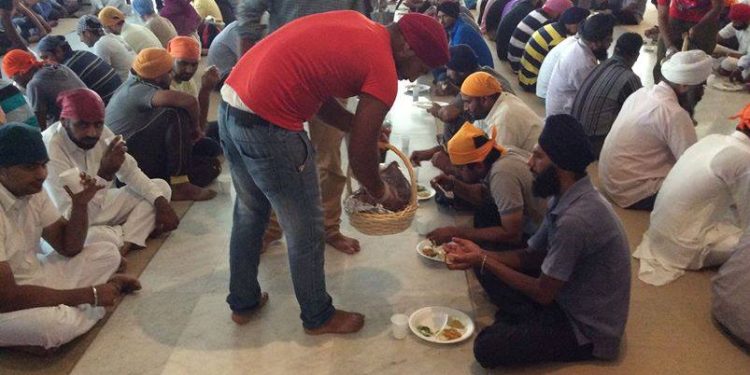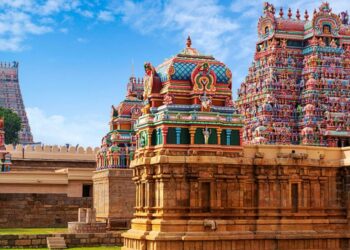The entry doors to knowing Sikhism and perceiving or experiencing its spiritual messaging and humanitarian traditions are Seva and Langar.
Sikhism gates open under these core values and fundamental practices that strongly emphasize charitable service and create a sense of equality.
Seva and Langar mark the identity of Sikhism as referring to voluntary services without expectation of any recognition or reward; and establishing equality in humanity without any distinction of class, caste, or colour.
Seva translated as service, and Langar, which refers to community kitchens, offer shining examples of humanitarianism and compassion to live with dignity and hunger-free in an environment of respect, compassion, and love.
Seva offers helpful services for the benefit of others. The concept is deeply rooted in the Sikh way of life, philosophy, teachings and traditions.
Seva takes many forms, including helping the needy, providing medical aid, offering comfort to the sick, cleaning public spaces, participating in community projects, contributing to environmental preservation, and many more.
In Gurdwaras, Seva involves preparing and serving the food, washing the dishes, mopping the floors, or even dusting the shoes of devotees when they are attending the prayers. The people who engage in these great and noble activities are called Sevadars. In my recent visit to the Sikh temple in Port Alberni, BC, the priest vacuumed the prayer hall after finishing the morning reading from the Guru Granth Sahib, the holy book of Sikhism.
Seva movements often occur worldwide, both in normal and crisis times. Hundreds of Sikh volunteers offered Seva, and others joined too in that spirit during the height of Corona pandemic all over the globe, from India to England, Australia, New Zealand, the USA, Canada, etc. In India, they distributed food, oxygen cylinders and transportation to the patients.
Acts of generosity and charity regarding money or services to the food bank, contributing to establishing or expanding hospital facilities, opening new educational centres or providing scholarships to people in need, creating spaces for the homeless and needy, etc., are all acts of Seva.
Besides Seva, the tradition of Langar is also an institution introduced by the first Sikh guru, Guru Nanak Dev. Langar feeds the body with pure vegetarian food and nurtures the soul under the Sikh principles of equality and humility.
Langar crosses the boundaries of caste ethnicity, fosters a sense of harmony, and creates a unity that breaks down social and religious barriers.
Nobody on this planet needs to be hungry is a powerful and emphatic message emanating from Langar Hall across all the sections of humanity.
Seva and Langar lie at the heart of Sikhism’s commitment to selflessness, equality, and community services. These fundamental practices in the Sikh faith embody the belief that service to humanity is the highest form of worship.











